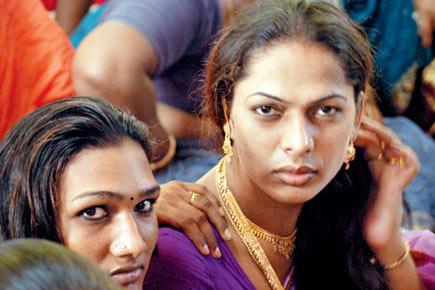A recently conducted study in Mexico has confirmed that violence and social rejection are the cause of mental distress and impairment among transgender people, not their gender identity

Mexico City: A recently conducted study in Mexico has confirmed that violence and social rejection are the cause of mental distress and impairment among transgender people, not their gender identity.
ADVERTISEMENT
Also read: Young transgender women at risk of psychiatric disorders, claims study

Picture for representational purposes
The researchers hope that the World Health Organisation (WHO) would consider declassifying being transgender as a mental disorder in their International Statistical Classification of Diseases (ICD). Currently the ICD lists transgender identity under the terms, transsexualism, dual-role transvestism, gender identity disorder in adolescents or adults and gender identity disorder not otherwise specified.
Following this report, the World Health Organisation (WHO) has announced that it will consider declassifying in the next edition of the ICD, which will be released as the 11th revision in 2018. WHO's International Statistical Classification of Diseases (ICD), is designed as a health care classification system, providing a system of diagnostic codes for classifying diseases both mental and physical.
It is the first in a series of similar studies that will be conducted in Brazil, France, India, Lebanon and South Africa.
The field study was conducted between April and August 2014 among 250 transgender adults who were receiving health care services at the Condesa Specialized Clinic in Mexico City.
The group went through an interview which found that 83 percent had experience distress over their gender identity during adolescence.
As per the findings of the study, the team feels that being transgender was never a disease and that is should be clarified. They further added that the reclassification will not only promote discussions for new health policies for the trans community to have better access to health services, but it will also help to reduce the stigma and rejection that they are victims of.
The results of the study were published in the journal The Lancet Psychiatry.
Another study on the mental health of transgender people found that over 40 percent unemployed or low-income young transgender women struggle with one or more mental health issues and nearly one in five from two or more psychiatric disorders.
In a landmark judgement in 2014, the Supreme Court recognised transgenders or eunuchs as third category of gender and directed Centre and states to grant them all facilities including voters ID, passport and driving license.
The Centre and States were also directed to take steps for bringing the community into the mainstream by providing adequate healthcare, education and employment. (Read more)
Following this, the voting percentage of the third gender surpassed the regular voters category in Mumbai. The total voting percentage of the third gender was 59.15 as compared to 53.50 of men and women combined in city. (Read more)
In June 2015, The University of Mumbai (MU), opened its doors to transgender admissions at colleges. Colleges also took steps to ensure that their students and staff were sensitised toward the transgender community and are ready to welcome the third gender with open minds. (Read more)
In May this year, Canadian Prime Minister Justin Trudeau announced that he will introduce legislation "to ensure the full protection of transgender people." (Read more)
In July 2016, The Supreme Court refused to modify its 2014 order on transgenders while clarifying that lesbians, gays and bisexuals are not third gender. A bench comprising Justices AK Sikri and NV Ramana said it is amply clear from the verdict of April 15, 2014 that lesbians, gays and bisexuals are not transgenders. (Read more)
 Subscribe today by clicking the link and stay updated with the latest news!" Click here!
Subscribe today by clicking the link and stay updated with the latest news!" Click here!







